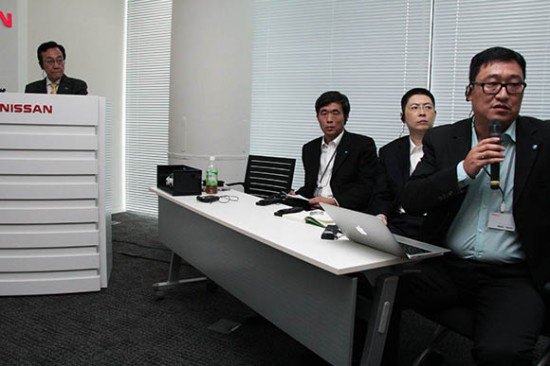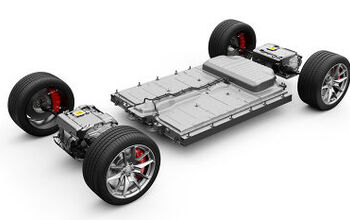Former Chinese Minster: "Joint Ventures Are Smoking Dope"

If you want to make cars in China, you need a joint venture partner. The Chinese joint venture partners have done well. 98 percent of last year’s sales of central government-owned Dongfeng came from joint ventures with Nissan, Honda, and Peugeot. Largest Chinese automaker SAIC derives 60 percent of its sales from made-in-China GM and Volkswagen cars.
That policy “is like opium. Once you’ve had it you will get addicted forever,” said former machinery and industry minister, He Guangyuan.
The influential ex-minister and former Standing Committee member gave an interview to the Chinese versions of Yahoo Auto , with an excerpt provided by Fang Yan of Reuters:
“From central authorities to local governments, everyone has been trying hard to bring in foreign investment. But so many years have passed and we don’t even has a one brand that can be competitive in the auto world. I feel red-faced.”
Reuters points out that it is extremely rare for current and even former senior government officials to publicly criticize an existing policy. Often, public utterances of former officials are meant to test the waters and could signal a shift. But a shift in which direction? Is the former minister suggesting to open the doors completely to foreign automakers, so that the cold wind of competition will wake up the Chinese industry from its Opium-induced slumber?
Dongfeng-Nissan President Kimiyasu Nakamura watches Yao Bin, Huang Kai Fong, and Ye Lei
China’s failure to create strong indigenous brands has been much discussed in China. China’s own brands lose market share to joint venture brands. A few years ago, the Chinese government started to strongly suggest to all joint ventures that it would be a great idea to launch an independent Chinese brand that is owned by the joint venture. The thinking was that this way, access to foreign technology would become easier.
It did not work out that way. Says Reuters:
“But instead of developing a car from scratch that would allow Chinese partners to claim half the patent rights and obtain know-how from their foreign partners, all the JVs simply took an existing foreign car model and only made a few changes to “create” a new JV car.”
From reading the interview, it sounds like the minister is going to a different direction. He praises Great Wall, one of the few Chinese car companies that start to make a name for themselves abroad.
“One should focus on support for the independent brands,” the former minster suggests.
As long as China’s state owned enterprises can indulge in being joint venture partners of the large multinationals, as long as the government fleet looks like the parking lot of Audi, the ex minister’s recommendations will fall on deaf ears.

Bertel Schmitt comes back to journalism after taking a 35 year break in advertising and marketing. He ran and owned advertising agencies in Duesseldorf, Germany, and New York City. Volkswagen A.G. was Bertel's most important corporate account. Schmitt's advertising and marketing career touched many corners of the industry with a special focus on automotive products and services. Since 2004, he lives in Japan and China with his wife <a href="http://www.tomokoandbertel.com"> Tomoko </a>. Bertel Schmitt is a founding board member of the <a href="http://www.offshoresuperseries.com"> Offshore Super Series </a>, an American offshore powerboat racing organization. He is co-owner of the racing team Typhoon.
More by Bertel Schmitt
Latest Car Reviews
Read moreLatest Product Reviews
Read moreRecent Comments
- Corey Lewis It's not competitive against others in the class, as my review discussed. https://www.thetruthaboutcars.com/cars/chevrolet/rental-review-the-2023-chevrolet-malibu-last-domestic-midsize-standing-44502760
- Turbo Is Black Magic My wife had one of these back in 06, did a ton of work to it… supercharger, full exhaust, full suspension.. it was a blast to drive even though it was still hilariously slow. Great for drive in nights, open the hatch fold the seats flat and just relax.Also this thing is a great example of how far we have come in crash safety even since just 2005… go look at these old crash tests now and I cringe at what a modern electric tank would do to this thing.
- MaintenanceCosts Whenever the topic of the xB comes up…Me: "The style is fun. The combination of the box shape and the aggressive detailing is very JDM."Wife: "Those are ghetto."Me: "They're smaller than a Corolla outside and have the space of a RAV4 inside."Wife: "Those are ghetto."Me: "They're kind of fun to drive with a stick."Wife: "Those are ghetto."It's one of a few cars (including its fellow box, the Ford Flex) on which we will just never see eye to eye.
- Oberkanone The alternative is a more expensive SUV. Yes, it will be missed.
- Ajla I did like this one.




































Comments
Join the conversation
This is the same complaints that used to be aired about a lot of the 'tranplant' car factories here in the US. Americans were complaining that all the design work, engineering, and even engine assembly sometimes is done in Japan, and only final assembly is done in the US. That was true in the beginning. But as time went by, most of the japanese carmakers established design and engineering firms here in the US and started designing for the US market. I believe the same will happen in China. But whether it's a good idea or not is highly debatable. Personally I think every one of the 'designed in America for America' japanese car, have been abject failures (even though most of them have sold very well- another tragedy)
It does sound as though the minister is not making the same point as Reuters, because Great Wall also "simply took an existing foreign car model and only made a few changes to “create” a new JV car", or at least in Great Wall's case they took a combination of different parts from past vehicles, with a little new sheetmetal. I don't believe they have built a car from scratch.